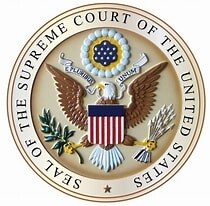Supreme Court Holds 11 U.S.C. § 363(m) Isn’t Jurisdictional; It’s a Limitation on Appellate Relief

MOAC MALL HOLDINGS, LLC vs. TRANSFORM HOLDCO, LLC, (22-1270, Supreme. Ct. April 19, 2023)
Reversing the Second Circuit, the Supreme Court handed down a unanimous opinion today in MOAC Mall Holdings LLC, deciding that Section 363(m) is not jurisdictional. It’s a limitation on the remedy available to an appellate court on an appeal from an order approving a sale.
Section 363(m) says that the reversal or modification “of an authorization under subsection (b) or (c) of this section of a sale or lease of property does not affect the validity of a sale or lease [to a purchaser in good faith] . . . unless such authorization and such sale or lease were stayed pending appeal.”
The Second and Fifth Circuits have held that Section 363(m) is jurisdictional. The Third, Sixth, Seventh, Ninth, Tenth and Eleventh Circuits have held that it is not. The opinion for the Court by Justice Ketanji Brown Jackson was her first since her elevation in June 2022.
The Sale of a Sears Lease
The petitioner in the Supreme Court was the landlord of a Sears store in the giant Mall of America. The landlord objected to the assignment of a lease but lost in bankruptcy court.
Initially, the district court reversed the bankruptcy court, holding that a provision in a lease cannot supplant the requirement in Section 365(b)(3)(A) mandating that the financial condition of an assignee of a lease must be “similar to the financial condition . . . of the debtor . . . as of the time the debtor became the lessee under the lease . . . .” MOAC Mall Holdings LLC v. Transform Holdco LLC (In re Sears Holdings Corp.), 613 B.R. 51 (S.D.N.Y. May 11, 2020). (“MOAC I”).
Two weeks later, the purchaser of the lease filed a motion for rehearing. Although having taken contrary positions throughout, the purchaser contended for the first time on rehearing that the appeal should be dismissed under Section 363(m) because the landlord had not obtained a stay pending appeal. Previously, the purchaser had consistently contended that the transaction was not a sale and that Section 363 did not apply.
Ruling on the motion for rehearing, the district judge said that the buyer now “seeks to benefit from a complete reversal of that representation.” MOAC II, 616 B.R. at 626. Citing In re WestPoint Stevens Inc., 600 F.3d 231, 248 (2d Cir. 2010), and In re Gucci, 105 F.3d 837, 838–840 (2d Cir. 1997), the district judge said that the Second Circuit had twice held that Section 363(m) is “a jurisdiction-depriving statute.” Id. at 624.
In MOAC II, the district judge granted rehearing, concluded that she lacked appellate jurisdiction, vacated her earlier opinion, and dismissed the appeal. The Second Circuit affirmed in a nonprecedential opinion. MOAC Mall Holdings LLC v. Transform Holdco LLC (In re Sears Holdings Corp.), 20-1846, 2021 BL 481940, 2021 US App Lexis 37358, 2021 WL 5986997 (2d Cir. Dec. 17, 2021).
The circuit panel said that the landlord’s argument “is foreclosed by our binding precedent in In re WestPoint Stevens Inc., under which § 363(m) deprived the District Court of appellate jurisdiction.” In another nonprecedential opinion citing WestPoint Stevens, a Second Circuit panel indeed had said that Section 363(m) is jurisdictional because it “creates a rule of statutory mootness.” Pursuit Holdings (NY) LLC v. Piazza (In re Pursuit Holdings (NY) LLC), 845 Fed. App’x 60, 62 (2d Cir. 2021).
The landlord filed a petition for certiorari in March 2022, raising the circuit split. The Court granted the petition at the end of the last term in June 2022.
Jurisdiction Must Be ‘Clearly Stated’
Addressing the merits, Justice Jackson rejected the buyer’s “creative arguments” and mirrored comments from the district court when she referred to the buyer’s conduct as “egregious” in waiting until rehearing in district court to raise the question of jurisdiction.
Justice Jackson’s opinion is another stab at repairing the Court’s precedents on jurisdiction versus power. She referred to “our past sometimes loose use of the word ‘jurisdiction.’” More recently, she said, “We have clarified that jurisdictional rules pertain to ‘the power of the court rather than to the rights or obligations of the parties.’”
Today, Justice Jackson said, “we only treat a provision as jurisdictional if Congress ‘clearly states’ as much,” citing Boechler, P.C. v. Commissioner, 142 S. Ct. 1493, 1494 (2022). On the other hand, Congress isn’t required to use “magic words,” she said.
To be jurisdictional, Justice Jackson said that “the statement must indeed be clear; it is insufficient that a jurisdictional reading is ‘plausible,’ or even ‘better,’ than nonjurisdictional alternatives,” again citing Boechler.
Applying precedent, Justice Jackson saw “nothing” in Section 363(m) “that purports to ‘gover[n] a court’s adjudicatory capacity,’” quoting Henderson v. Shinseki, 562 U.S. 428, 435 (2011). To the contrary, she said that “§ 363(m) takes as a given the exercise of judicial power over any authorization under § 363(b) or § 363(c).”
The section, Justice Jackson said, “consists of a caveated constraint on the effect of a reversal or modification” and “is not the stuff of which clear statements are made.”
Noting that Section 363(m) is not located in 28 U.S.C. § 1334(a)-(b), (e) and § 157, Justice Jackson said, “Statutory context leads to the same conclusion” that Section 363(m) is not jurisdictional. She said that the buyer “does not (because it cannot) deny the paucity of textual or contextual clues indicating a clear statement of jurisdictional intent.”
Justice Jackson said that Section 363(m) is “a mere restriction on the effects of a valid exercise of [appellate] power when a party successfully appeals a covered authorization.”
Commentary on Equitable Mootness?
The buyer argued in the Supreme Court that the appeal was moot even without regard to Section 363(m). Justice Jackson rejected the argument using words that might be read as undercutting the validity of the doctrine of equitable mootness, which is the topic of a pending petition for certiorari. See U.S. Bank N.A. v. Windstream Holdings Inc., 22-926 (Sup. Ct.).
Without relying on Section 363(m), the buyer argued that the appeal was moot because the transfer of the lease could not now be avoided as a post-petition transaction under Section 549 since the debtor alone had standing to raise Section 549 and the debtor had waived any rights under that section.
In short, the buyer was saying that the appeal was moot because no relief could be granted.
Justice Jackson said that a “‘case becomes moot only when it is impossible for a court to grant any effectual relief whatever to the prevailing party,’” quoting Chafin v. Chafin, 568 U.S. 165, 172 (2013). “The case remains live,” she said, “‘[a]s long as the parties have a concrete interest, however small, in the outcome of the litigation.’” Id.
In the MOAC appeal, Justice Jackson said, “[W]e cannot say that the parties have ‘no “concrete interest,’” id. at 176, in whether [the buyer] obtains that relief.”
As a court of “first review,” Justice Jackson rejected the mootness contention, saying, “[W]e decline to act as a court of ‘first view,’ plumbing the Code’s complex depths in ‘the first instance’ to assure ourselves that [the buyer] is correct about its contention that no relief remains legally available.”
The Court remanded the case to the Second Circuit for “further proceedings consistent with this opinion.”
American Bankruptcy Institute’s Observations
Today’s opinion casts doubt on the doctrine of equitable mootness, where courts routinely dismiss appeals from confirmation orders where the plans have been consummated. MOAC could be read to mean that appellate courts should not in the first instance decide that no relief is available following reversal.
MOAC could be read to mean that an appellate court should hear an appeal from a confirmed plan as long as there is constitutional or Article III jurisdiction. More often than not, the appellate court will uphold confirmation and never reach the question of whether there would have been available relief had there been a reversal.
On remand from reversal of confirmation, the bankruptcy court might locate a sliver of relief for the appellant that would not upset the apple cart and undo the plan altogether. Perhaps the bankruptcy court could award attorneys’ fees to the creditor who appealed confirmation and established an important principle about chapter 11 plans.





